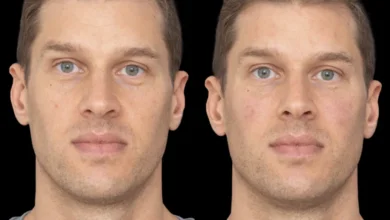Injecting mRNA and Generating CAR-T Directly in the Body to Repair the Heart in One Shot

On January 6, 2022, researchers from the Perelman School of Medicine at the University of Pennsylvania published a transformative study in Science that could reshape how cardiac fibrosis and related conditions are treated. The research introduced a novel approach to producing CAR-T cells in vivo, leveraging mRNA technology to target cardiac fibrosis—a critical condition that can lead to heart failure, liver disease, and kidney failure. This innovative method offers significant advantages over traditional CAR-T cell therapies, promising a faster, less complex, and more cost-effective solution.
Background on Cardiac Fibrosis and CAR-T Therapy
Cardiac fibrosis occurs when fibroblasts in the heart overproduce fibrous material in response to damage or inflammation. This excess fibrous tissue hardens the heart muscle, compromising its function. Conditions like heart failure, liver disease, and kidney failure often stem from this pathological fibrosis. Traditional CAR-T therapies, initially FDA-approved in 2017 for leukemia treatment, involve reprogramming a patient’s T cells to target specific cancer cells. While effective, this process requires external manipulation of the cells, making it time-consuming and prohibitively expensive, with costs reaching hundreds of thousands of dollars.
Although CAR-T therapies have primarily been used to treat blood cancers, their potential for addressing non-cancerous conditions has gained attention. In 2019, Jonathan Epstein and his team at the University of Pennsylvania demonstrated the capability of CAR-T therapies to target overactive cardiac fibroblasts, restoring heart function in preclinical models. However, the complexity and cost of manufacturing CAR-T cells limited its applicability beyond cancer.
The Breakthrough: In Vivo CAR-T Cell Production
In the new study, Epstein’s team developed an mRNA-based method to produce CAR-T cells directly within the body. This process bypasses the need to extract and reprogram T cells in a laboratory. Instead, the researchers used lipid nanoparticles (LNPs), a delivery system proven effective in COVID-19 mRNA vaccines, to encapsulate mRNA that codes for a chimeric antigen receptor targeting fibroblast-activating protein (FAP). These nanoparticles were designed to recognize CD5, a protein abundantly expressed on T cells, ensuring precise delivery.
Once injected into a mouse model of heart injury, the LNPs successfully delivered the mRNA to T cells, temporarily reprogramming them to target and attack activated fibroblasts. This innovative method resulted in a significant reduction in cardiac fibrosis, as well as restored heart size and function, all within a matter of days.
Key Advantages of mRNA-Based CAR-T Therapy
This transient CAR-T therapy holds several unique advantages over traditional approaches:
- Simplicity and Speed: The therapy eliminates the need for external cell manipulation, significantly reducing the time and resources required.
- Cost-Effectiveness: By removing labor-intensive steps, this approach has the potential to drastically lower the cost of CAR-T treatments.
- Safety: Because the reprogramming is transient, lasting only about a week, it minimizes the risk of long-term immune suppression. This ensures that fibroblasts can resume their normal wound-healing functions once the therapy’s effects subside.
The transient nature of the therapy is particularly crucial. Unlike traditional CAR-T treatments, which involve permanent genetic modification using viral vectors, the mRNA approach does not integrate into the T cell genome. This temporary effect reduces the risk of unintended consequences, such as long-term suppression of fibroblast activity, which could impair tissue repair.
Preclinical Results
The researchers conducted therapeutic experiments on mice with induced heart injuries. After the injection of the mRNA-laden LNPs, the T cells were successfully reprogrammed and directed to attack overactive fibroblasts. Within days, the treatment achieved a marked reduction in cardiac fibrosis and restored normal cardiac function. Importantly, the T cells returned to their normal state after the mRNA degraded, ensuring the treatment’s effects were both effective and transient.
Future Implications and Research Directions
This study not only advances the field of CAR-T therapies but also sets the stage for broader applications. The ability to use mRNA technology to produce CAR-T cells in vivo could address other conditions beyond cardiac fibrosis, such as autoimmune diseases and additional fibrotic disorders.
The research team, including key figures like Jonathan Epstein, Drew Weissman (a pioneer in mRNA technology), and Carl June (the “father of CAR-T therapy”), expressed optimism about moving the therapy toward human clinical trials. The collaboration between experts in mRNA delivery and CAR-T technology underscores the interdisciplinary nature of this breakthrough.
Challenges and Considerations
While the results are promising, challenges remain. The transient nature of the therapy, while advantageous for safety, may limit its long-term efficacy for chronic conditions. Balancing the duration and intensity of T cell activity will be critical as the therapy progresses to human trials. Additionally, scaling the LNP delivery system and ensuring consistent targeting in humans will require further refinement.
Conclusion
The development of in vivo-produced CAR-T cells using mRNA technology represents a significant leap forward in biomedicine. By combining the precision of CAR-T therapy with the efficiency of mRNA delivery systems, this approach offers a transformative solution to cardiac fibrosis and potentially many other diseases. As the research advances toward human trials, it brings hope for more accessible, effective, and versatile treatments, redefining the landscape of personalized medicine.
The vast majority of cancer cells exhibit either a deficit or an excess of certain chromosomes, a condition known as Read more
Introduction Proximity-dependent Biotin Identification (BioID) is a powerful technique used to study protein-protein interactions within living cells. By harnessing the Read more
In the intricate world of enzymes, one stands out for its remarkable ability to tackle some of the most resilient Read more
On October 2nd, the Nobel Assembly awarded the 2023 Nobel Prize in Physiology or Medicine to Katalin Karikó and Drew Read more







